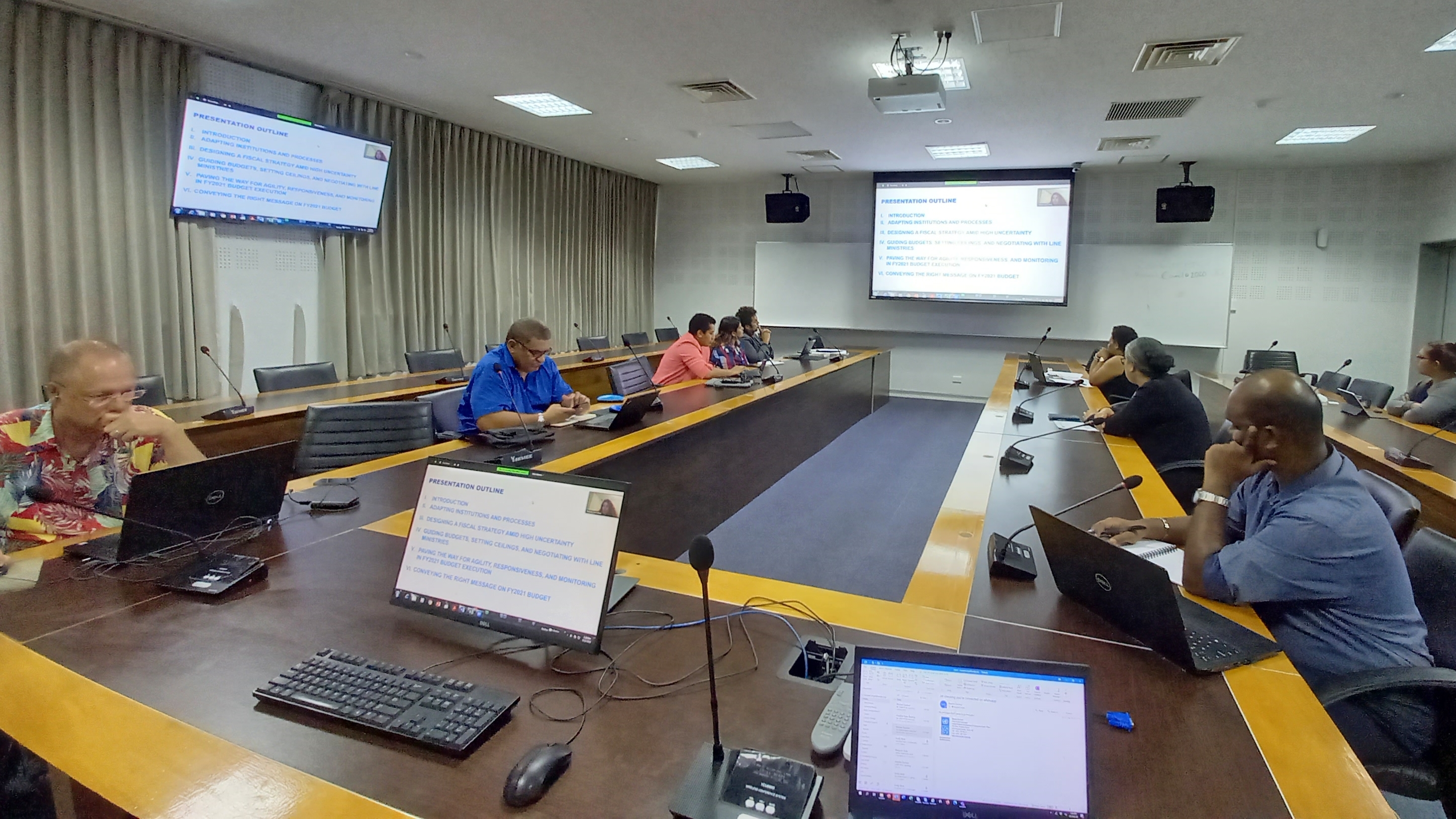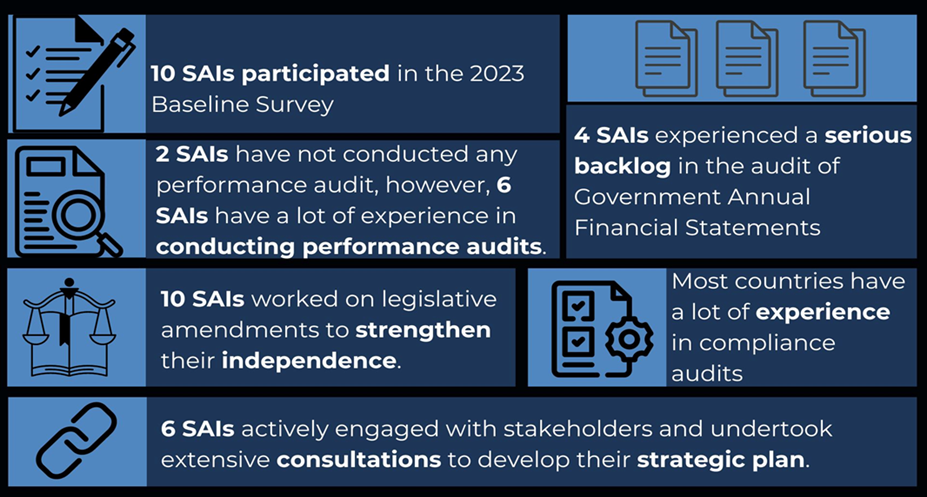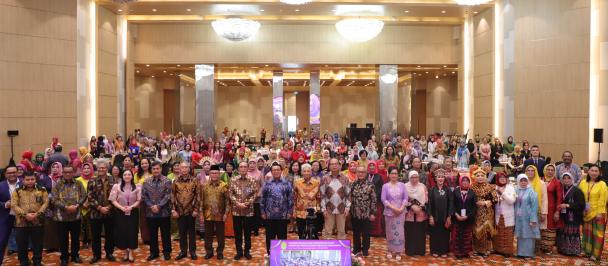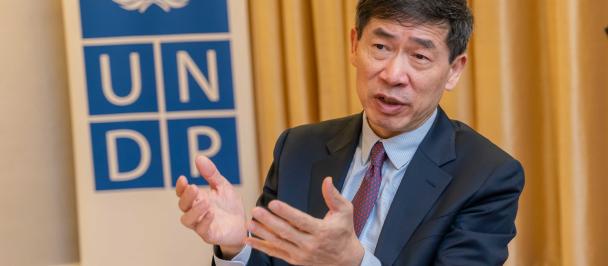Pacific Supreme Audit Institutions: Building Stronger Public Finance Oversight for a Sustainable Future
March 29, 2024

There's positive movement towards strengthening audit independence across the Pacific, a cornerstone of effective oversight.
The 2023 Vaka Pasifika baseline survey for Supreme Audit Institutions (SAIs), conducted by UNDP and supported by the European Union (EU), paints a promising picture of progress. While stakeholder engagement is a key area of focus in this blog post, the survey itself delves into a broader range of public finance oversight practices.
Strengthening Audit Independence and Diverse Audit Types
Audit Independence: There's positive movement towards strengthening audit independence, a cornerstone of effective oversight. In 2023, of the ten SAIs who responded to the survey, 9 are working on legislative reforms (including 2 which have already seen their amendments tabled in Parliaments) and 1 has successfully reviewed their legislation. However, gaining political and financial support, navigating lengthy legal processes (a recurring challenge mentioned in the survey), and securing adequate staffing and resources remain challenges.
Financial and Performance Audit: The survey findings indicated worrying signs of risks linked to serious audit backlog, with little progress on financial audit since the last survey. Late submissions of financial statements by the government continues to be a concern in the region. Public Auditors are however defining strategies to enhance their relevance and visibility by strategically directing resources to performance audits. This shift focuses on assessing program results alongside cost-effectiveness. The survey suggests twinning and mentoring programs between experienced and less experienced SAI’s could be beneficial for capacity building in performance audits (8 out of 10 SAIs surveyed have embraced performance audits).
Compliance Audits: Although most SAIs lack the resources and staff for dedicated compliance audits as some integrate them within their financial or performance audits, showing once again the resourcefulness of auditors when it comes to maximizing limited resources. Only one country hasn't begun compliance audits yet but plans to start in 2025. Capacity building initiatives are crucial to address limitations in this area.

Baseline survey key statistics.
RMI Case Study: Performance Audits Driving Policy Change
The Republic of the Marshall Islands (RMI) Office of the Auditor General presented two impactful performance audits during the Vaka Pasifika Project webinar, showcasing the potential of these audits to influence positive change.
Audit 1 - Streamlining Government Operations
This audit evaluated the Ministry of Internal Affairs, assessing program alignment and efficiency. It identified overlapping services and underutilized programs. Recommendations included:
• Closing the printing office and reallocating its budget.
• Streamlining financial management functions.
• Transferring specific functions to other ministries for efficiency gains.
This case demonstrates how performance audits can optimize resource allocation and reduce duplication within government.
Audit 2 - Strengthening Passport Security
Prompted by allegations of misuse, this audit examined the passport program. It revealed weaknesses in internal controls, lack of governing legislation, and security concerns. The audit can be link to the following results and policy shifts in RMI:
• Enactment of the Passport Act.
• Implementation of a diplomatic and official passport policy.
• Enhanced security measures for passport issuance.
This case highlights how performance audits can improve governance and public safety by identifying security vulnerabilities and prompting legislative action.
Government's Swift Response - Existing Policy Discussions as a Catalyst
The presentation sparked discussion about the RMI government's rapid response to the passport program audit. Head of SAI from the Republic of Marshal Islands, Mr. Patrick explained that the government was already considering passport-related legislation when the audit began. The Attorney General's office saw the audit as an opportunity to inform the proposed legislation, leading to a faster response. This suggests that ongoing policy discussions and a receptive government can create fertile ground for implementing audit recommendations and driving positive change.
Stakeholder Engagement - Moving from Information Sharing to Collaboration
Traditionally, stakeholder engagement involved disseminating information through websites, social media, press releases, and public outreach programs. The 2023 survey indicates a rise in two-way communication compared to 2022. Examples include consultations during strategic planning (Nauru, Tuvalu, RMI, Palau) and CSO participation in the review of the Fiji Audit Act. Knowledge sharing with SAIs from other regions with more experience in stakeholder engagement is recommended to further enhance these practices.
Fiji Case Study: Expanding Stakeholder collaboration
The Fiji Office of the Auditor General's offers an example of expanding stakeholder engagement. Ms. Finau Nagera, the acting Deputy Auditor General highlighted several initiatives during the webinar. Traditionally, their engagement focused on audit clients and the legislature. However, they recognize the value of citizen participation and are actively working to strengthen these connections.
One example is the inclusion of citizens in performance audits. For instance, during an audit on gravel and sand extraction, the audit team directly interviewed residents living near the extraction sites. This approach incorporates citizen perspectives into the audit process.
The OAG also collaborated with CSOs during the review of the Fiji Audit Act. CSOs provided written submissions and participated in consultation meetings. Notably, two of their recommendations focused on citizen participation in monitoring major infrastructure projects. This collaboration highlights the potential value of CSO expertise in identifying areas for improvement in public finance management.
Furthermore, the OAG recognizes the media as a powerful advocacy tool. While they haven't had extensive media engagement yet, they are actively seeking to learn from other Pacific SAIs with successful media outreach strategies and will be collaborating with UNDP in 2024 to launch a new Guide to Audits.
Integration of Gender: A Growing Focus
The survey included questions on gender integration in audit practices. Responses and lack of thereof showed that auditors are not used to articulating the impact of their work in relation to gender, however many auditors are working on gender and Sustainable Development Goals related audits. This will be an area of work and discussions in upcoming regional and national work for the UNDP Vaka Pasifika project.,
Looking Ahead: A Brighter Future for Public Finance Oversight
The baseline survey results paint an optimistic picture for SAIs in the region. Progress is being made in areas like audit independence and increased capacity on strategic and high-visibility audits. Initiatives like CSO workshops and knowledge sharing programs offered by UNDP hold potential for further strengthening the impact of audits in the region. By fostering a comprehensive approach that prioritizes audit independence, diverse audit types, stakeholder engagement, and gender considerations, SAIs can significantly strengthen public finance oversight. This, in turn, is essential for achieving sustainable development and good governance, both of which are priorities in the 2050 Strategy for the Blue Pacific Continent.
Effective public finance management ensures responsible use of public resources, paving the way for a more prosperous and resilient future for the Pacific region.
Read more on Pacific Auditors General making strides in independence, outreach, and audit quality here.
Maraia Vavaitamana is the Monitoring, Evaluation and Learning Officer with the Vaka Pasifika project.

 Locations
Locations



